Once designer Aneta Sofronova had the realization that holistic health must include what we dress our bodies in, Nusha was born. But it was only after she launched the slow-fashion brand with a focus on hemp fabrics that she learned that hemp, cânepă, was deeply rooted in her Moldovan heritage, where she was born. Her grandmother in Moldova grew hemp in the garden, retted the stalks in the river, processed the fibres, spun the yarn and wove hemp into cloth. She also fed her children hemp hearts and made hemp milk. It was an extremely important plant for the villagers as it offered exceptionally nutritious food, strong fibres and kept the soil healthy. Now, the main focus of Nusha is to create a cleaner and safer supply chain with a major emphasis on non-toxic plant-based fibres using mostly hemp. Oh, and beautiful clothing, too. We chatted with Aneta to learn more. —Vita Daily
Can you share the moment when you realized that holistic health includes the clothes we wear and how that influenced the creation of Nusha?
There were many small moments over the course of multiple years leading up to the major realization that true holistic health must also include clothing. I began a more serious personal health journey when I started to learn about the effects of xenoestrogens found in plastics, cleaning products, tap water and fragrances. I learned about the negative effects they have on our endocrine system (hormones) so I decided to get rid of all the plastic food containers and utensils in my kitchen, generic cleaning products and body care/cosmetic products. That began a major shift in the way I saw daily life and the world we have built for ourselves. That naturally translated into understanding food ingredients better and the use of chemical fertilizers and pesticides. After years of cleaning up my lifestyle and building awareness – fashion seemed like the final frontier: clothing is something we have contact with every single day and to think that we are constantly in contact with petroleum derived fibres (like polyester and nylon and chemically treated natural fibres) 60% of the clothing we wear collectively is synthetic — I just know that cannot have healthy long term effects. This is how Nusha was born.
How did discovering the deep roots of hemp in your Moldovan heritage influence your approach to using hemp fabrics in Nusha?
Interestingly enough, my fascination with hemp naturally occurred before I even learned about my ancestral use of the plant. I read an incredible book called Hemp Bound by Doug Fine and I was immediately impressed and felt so empowered by a single plant, believing we can truly change the world by utilizing something so natural and accessible. As I started to share with my family that I was going to finally start my own clothing label and focus on using hemp I learned that my grandmother (the one I happen to look identical to) used to grow, process and weave with hemp in her Moldavian village. ‘Cânepa’ is the name they use back home and it was a very important crop for many of the village people, everyone used to grow it. They mainly used it as a food source (hemp hearts), and would weave it into cloth, twist it into strong rope and even use the tougher hemp stalks as effective anti-bacterial animal bedding. When I heard that my grandmother grew it and loomed it herself, I knew it was fate that I would fall in love with the same plant and put it at the center of my work.
What are the key benefits of hemp fabrics, both environmentally and for personal health, that make it a cornerstone of Nusha’s collections?
Hemp has so many positive traits it’s hard to know where to begin. Firstly the fibre is very strong, it has 3x the tensile strength of cotton so that means the clothing itself will last longer. That means more wear, less cost per use, less reason to have to replace the product. Another beautiful quality about hemp is that the more you wear it the more it feels like the fabric softens and molds to the shape of your body (especially when wearing 100% hemp which has a very similar hand feel to linen). Hemp is anti-bacterial, is resistant to mold and has a natural UPF rating of +45 (sun protection rating). Hemp is also a carbon negative crop, it absorbs 4x more carbon dioxide than trees.
It takes 20 years and 4 acres to grow trees to make paper. They call it the plant of 50,000 uses because it truly has so many interesting and diverse applications and can be grown in many climates across many continents.
Can you explain the steps Nusha takes to ensure a cleaner and safer supply chain from the farm to the finished garment?
Hemp naturally has incredible phytoremediation qualities built into it that make it a cleaner more environmentally friendly crop: it uses only 10% of the water that is required to grow cotton, it can grow without the use of fertilizers and pesticides (keeping chemicals out of water ways and not exposing farmers), it repairs damaged dead soil with deep tap roots and can actually clean up contaminated soils by up taking metals and chemicals which is very beneficial for farmers that want to return to more organic regenerative farming. Hemp regenerates the soil. All Nusha clothing is locally and ethically cut and sewn right here in Ontario and we will keep production in North America as we expand so we can be closely monitoring safety and quality.
As for the dyes used on Nusha clothing we work with natural plant dyes wherever possible, even though the process is costly, tedious and time consuming, we believe that there is a place in the fashion world where consumers would prefer to choose a natural dye over the synthetic chemicals used on almost all clothing. The least sustainable practice of the entire fashion industry is in the dyes that are used. They are the most toxic part of the cycle. We are at the early stages of the brand and there is a lot of work to be done but we want to change the expectations and norms of the industry.
How do you see the impact of using non-toxic, plant-based fibers like hemp on the communities and ecosystems involved in their production?
To add to the last answer about phytoremediation, repairing soil and ecosystems and to focusing on natural dyes and keeping chemicals out of fresh water ways: hemp also does not release plastic micro particles unlike synthetic fabrics. We are entering an era where microplastics are now even being found in the snow on top of Mount Everest. This doesn’t just come from using plastic water bottles and disposable cutlery and straws, it comes from so much more. A massive amount of plastic micro particle water contamination comes from washing and drying these petroleum based fabrics. This releases tiny microscopic plastics into our waterways therefore contaminating the ecosystem and the community. The more we can step away from plastic and lean back into plant-based fibres, the more we can protect our water, eco-systems, communities and therefore our own hormonal health.
Win! 1 of 2 Nusha Sun Hats!
Congrats Iona T. of Victoria, BC, and Amy K. of Toronto, ON, who will each receive a Nusha sun hat, made to order in their size and preferred colour! Please note: if you are the winner, you will receive a DM (direct message) in Instagram directly from @vitadailymedia. Please be wary of fake accounts, which often use similar handles with an extra or missing letter, number or symbol. We will never ask for a payment or for your credit card number, and we will never ask you to click through a link. If you are unsure whether you have been contacted, via Instagram, by us or a fake account, email us before responding.
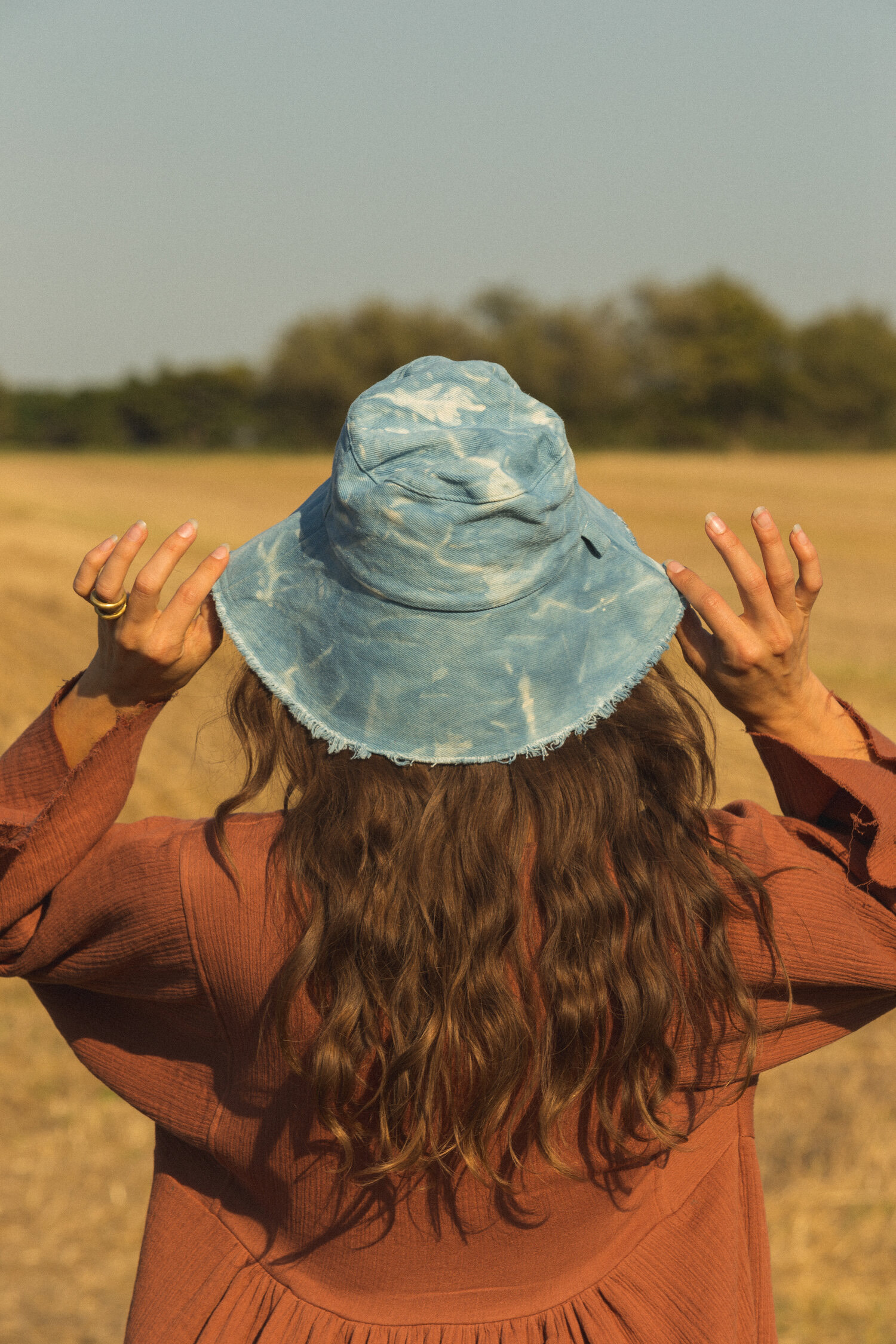
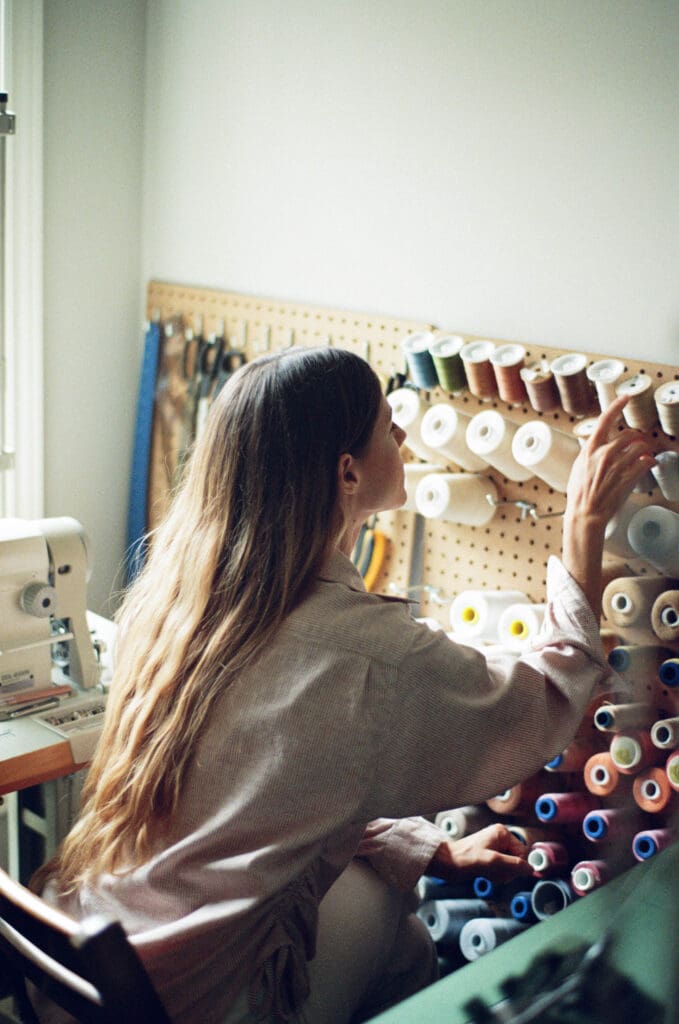
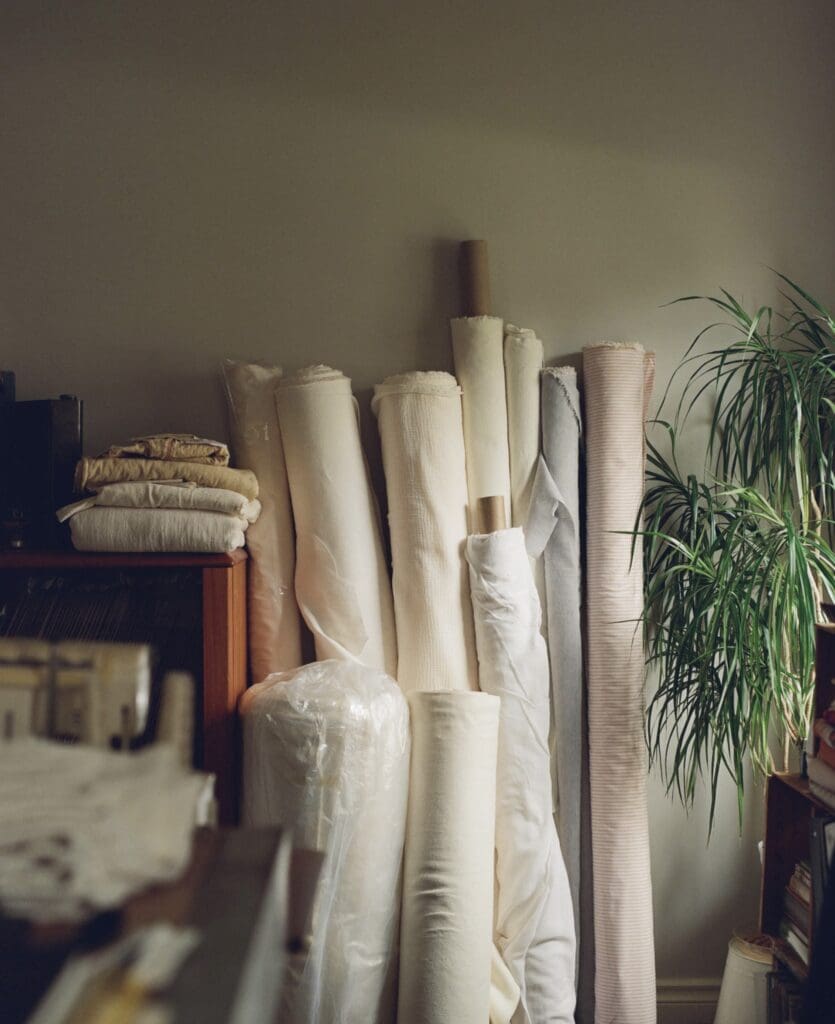
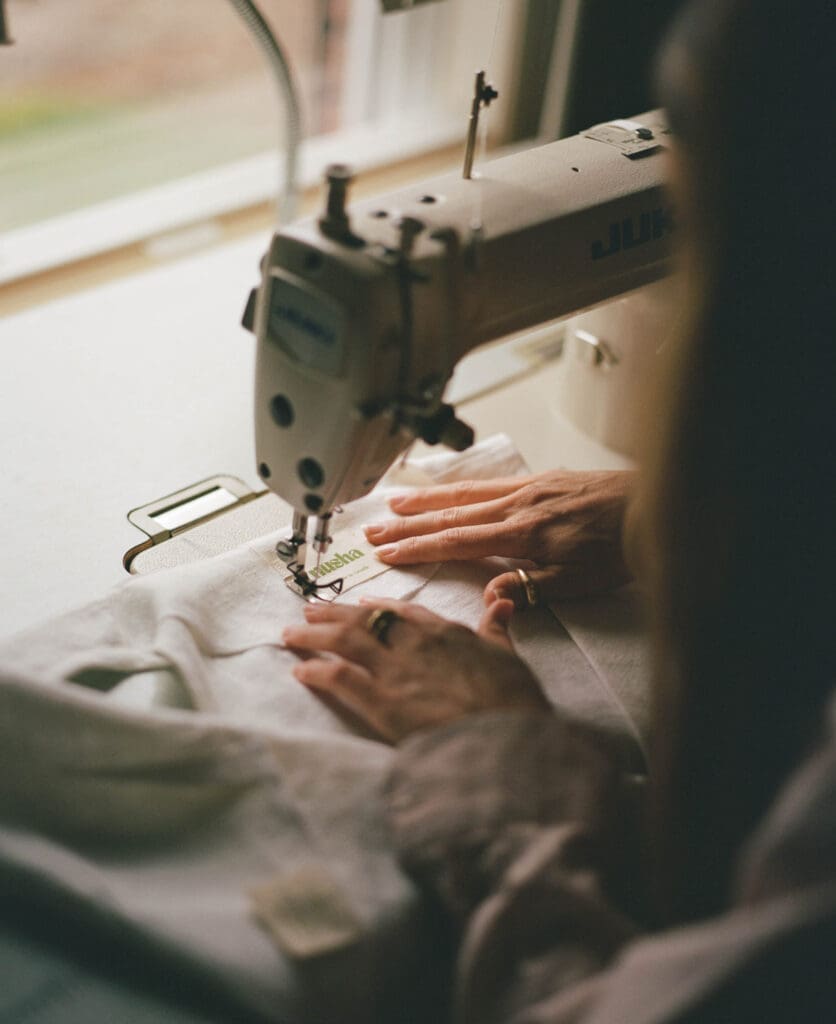
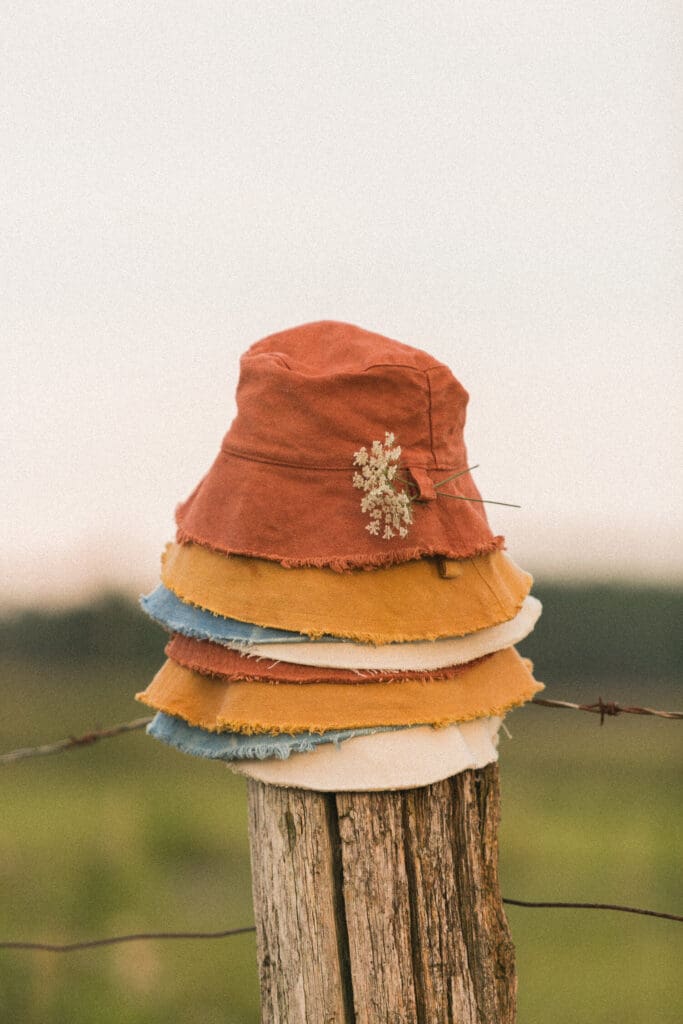
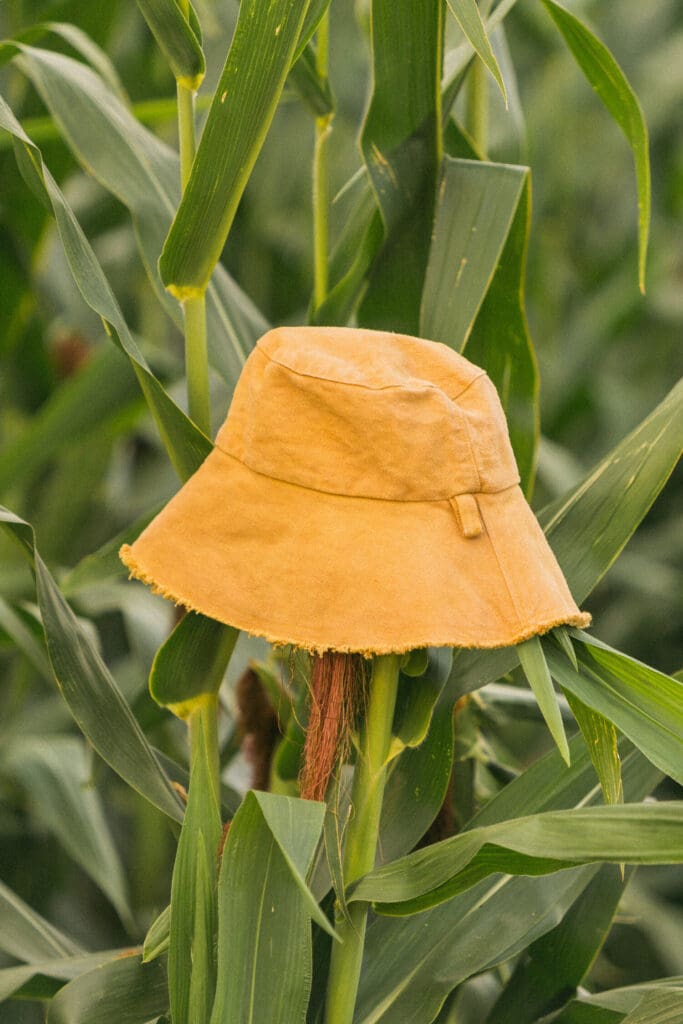

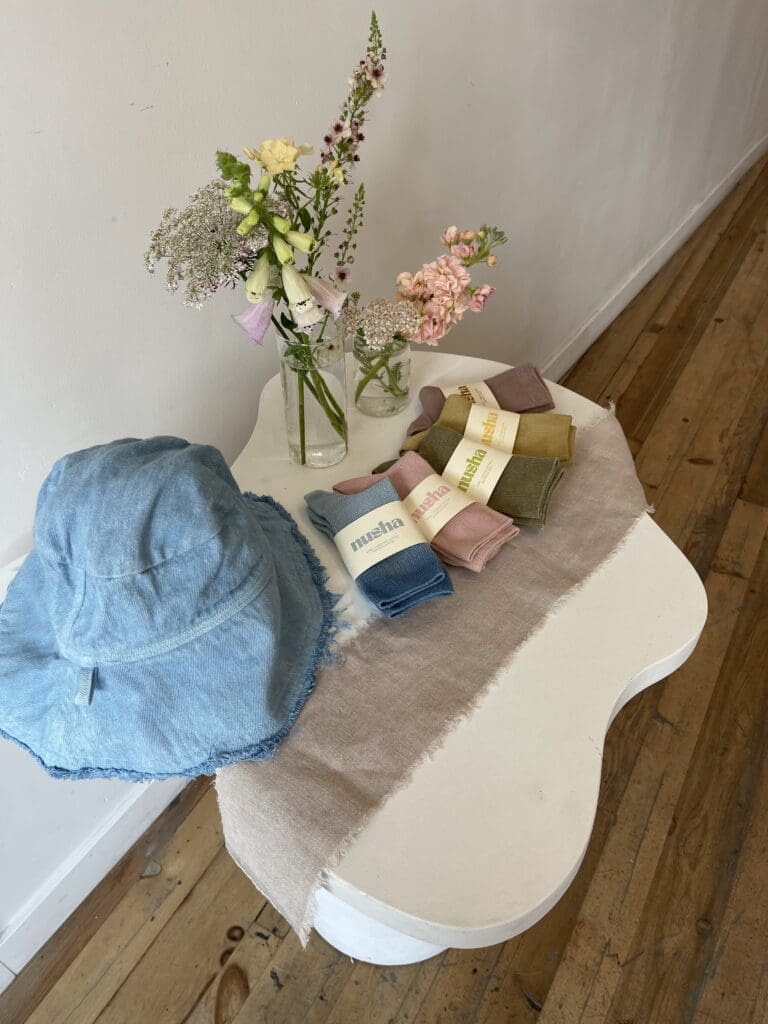
July 19th, 2024 at 12:35 pm
My friend Cindy @grade_3_with_mrs.p loves slow fashion. @janinerutledge
July 19th, 2024 at 12:38 pm
love the concept and the products. thanks
@asdsafel
July 19th, 2024 at 5:13 pm
Love slow-fashion brands.
Great product, would love one of these sun hats!
@tamara_pavicic
July 20th, 2024 at 9:00 pm
@weelkesr
@asdsafel
July 21st, 2024 at 12:12 pm
I really like that you make your products from natural fibers. I am happy to hear this. We have to many plastic clothing being made. We need more made in Canada of natural fabrics
July 25th, 2024 at 5:28 pm
Love the bucket hats! GMc – one for you, too?
@msdanieli
July 25th, 2024 at 10:15 pm
This is very sustainable. Love all sustainable products! @xuliang889